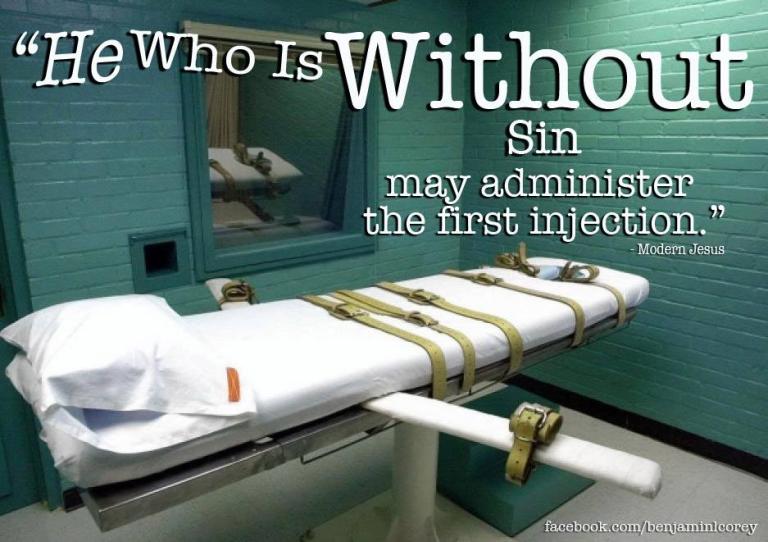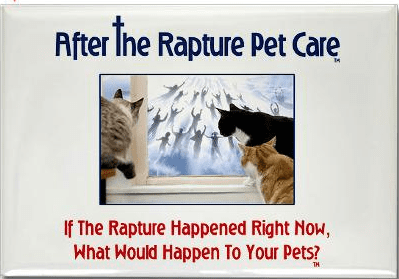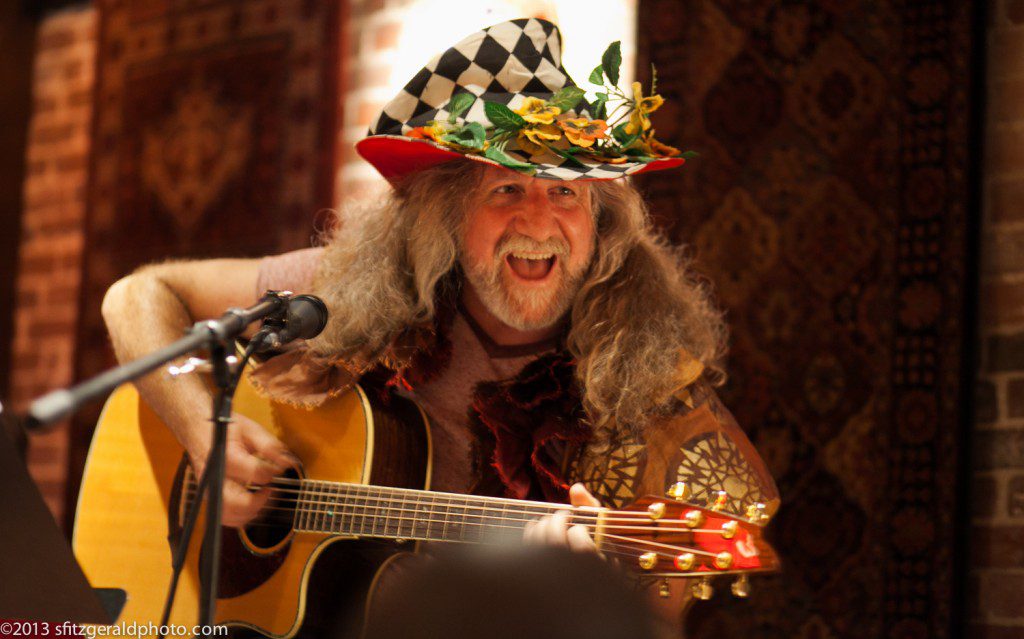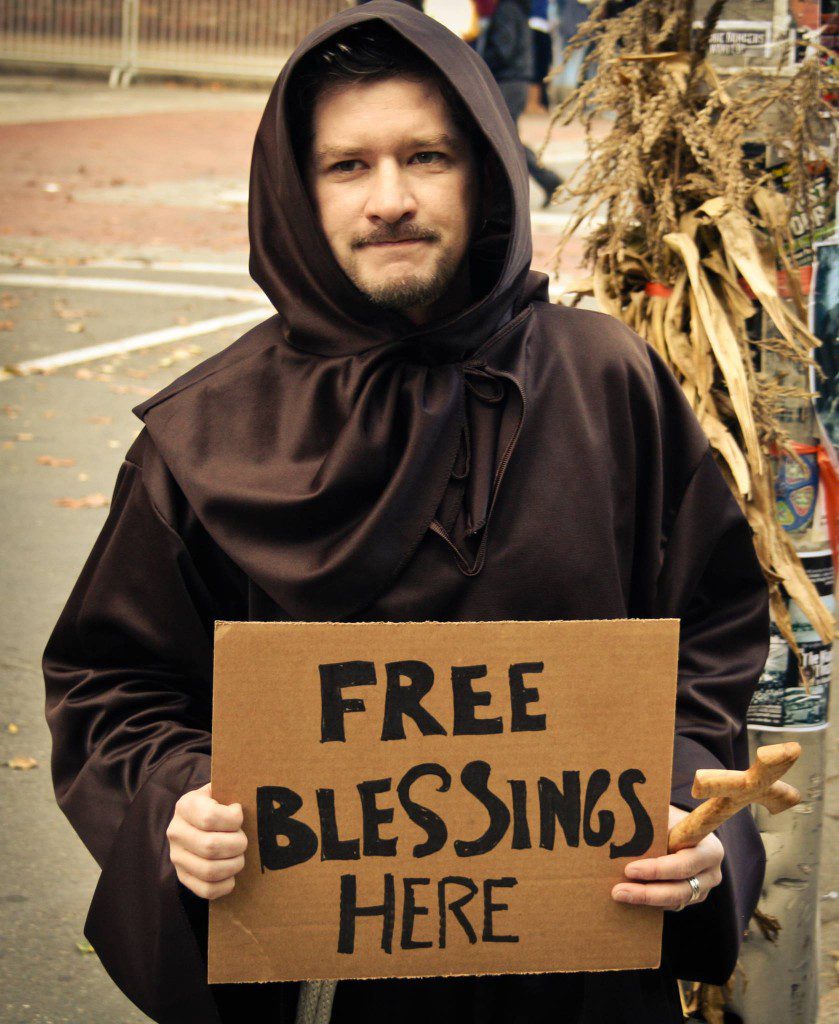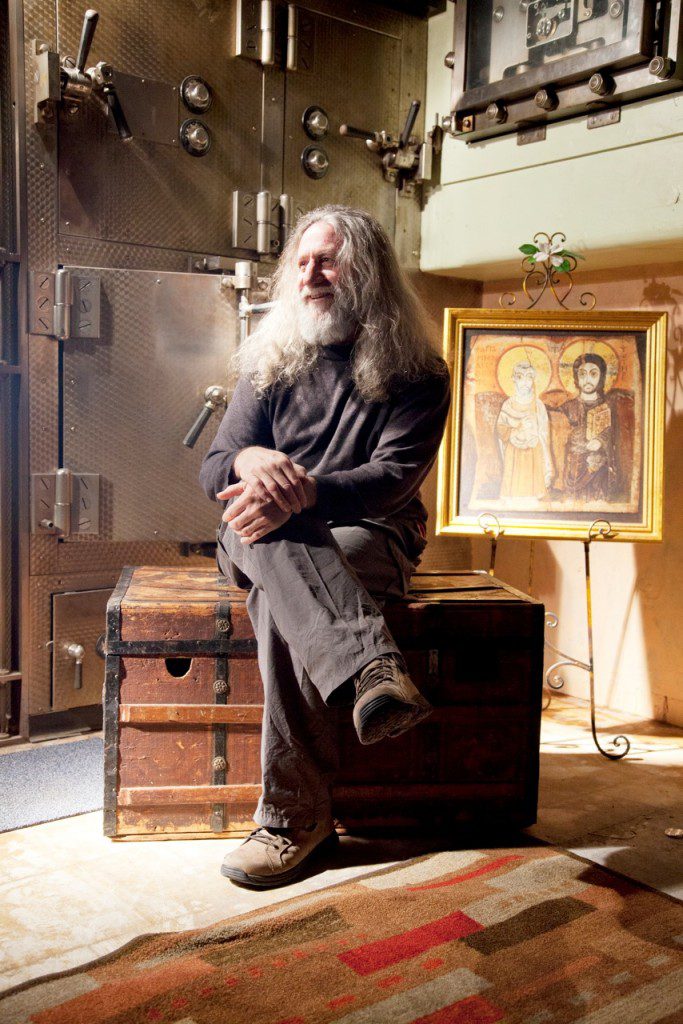
What I’m about to tell you is the most personal, sacred story that I’ve ever told. I never imagined telling it publicly in front of thousands of people, but something in my spirit says that someone, somewhere, needs to hear this today.
Over the last few days we’ve been talking a lot about God, creation, evolution, and all sorts of interesting questions. Yesterday, one reader commented that they thought I was really an agnostic at heart, and that if I’d keep thinking critically, I’d probably abandon my faith and embrace life as an agnostic.
Today I’m going to tell you why, in a million years, that will never, ever, happen.
I believe in God for many reasons, but the most powerful of them all, is belief that stems from a personal experience– something quantifiable only to me, but is sufficient for me to promise you that you’ll never see a blog, article, or press report that Benjamin L. Corey has become anything other than a God believer.
Here’s why:
The God I grew up with wasn’t exactly a God you “experienced”. Instead of a warm and loving image of God, the version I had grown to know by the time I was in my teens, was a deity who looked more like a hybrid of an angry Tea Party member crossed with Jerry Falwell than it did the nonviolent lover of enemies I now know as Jesus of Nazareth. The God I knew was mostly defined by what he hated: earrings on guys, Mexicans, playing cards, drums and guitars in worship, people on welfare, United Methodists, all forms of dancing (except the form called “jumping for joy”), science teachers, lesbians, people with “coexist” bumper stickers, and Bill Clinton. Basically, my concept of god (small g) was an all powerful being who was pissed off and hated nearly everybody. Furthermore, I was also convinced that because of his tremendous love for us, he would never miss an opportunity to punish us, because “the Lord chastises those he loves”.
This angry, impossible to please image of God didn’t serve me well when life fell apart for me.
At 27 years old, I found myself in a dark corner of the universe. Health issues had resulted in a medical retirement from the military which had been my core identity for a decade. Financially, I went from making good money, to making less than enough to live, in just a matter of months. The stress of the transition and the depression that followed, quickly grew to become a fatal blow to my marriage. Before I knew it, I was broke, alone, divorcing, and about as clinically depressed as a person could get.
I wanted to die.
My sick and twisted concept of God, made the situation infinitely worse. I became utterly convinced that God was taking everything in my life away because of some sin I had committed… which one, I wasn’t sure (not that there weren’t plenty of options to chose from), but when you have an effed up concept of God, you have a tendency to view painful aspects of life as being directly from the hand of God.
And, if God is against you, what hope do you have?
I had none.
And so, the situation dwindled to the point that I had only one solution… I would take my life.
At first, I was shocked that I was seriously considering it. When I was 17, I suffered through a suicide in my immediate family, and the fact that I was making plans to end my life– thus putting everyone through this situation all over again– actually made me hate myself even more than I already did.
The more I considered it, the more the situation spiraled out of control… to the point that I had made up my mind to follow through.
While I don’t know what it feels like to spend your last day on death row, I do know what it is like to face the day I was scheduled to die. I loaded a bullet into the chamber of my Smith & Wesson handgun and began working up the courage to pull the trigger. I sat on the couch and wept, wishing there were a better answer. In an attempt to talk myself out of it, I turned on the television in hopes of finding some sort of religious program, which could potentially offer me hope. I landed on a program that was a panel discussion about God, and listened for a few minutes. One of the men on the panel was an agnostic, and said something that resonated with me. He said, “if there is a God, clearly he is not concerned with the affairs of man.”
Something deep inside me felt as if this were true, but I desperately wished that it were not. Certainly, if there was a God, he was completely unconcerned that my life was falling apart and that I was about to end my life.
Working up the courage to pull the trigger was hard for me. There were so many mixed emotions that I couldn’t explain, yet I so desperately wanted to follow through. However, something inside me kept getting in the way- so I decided I’d go to the store to grab something to drink and take the edge off, before coming home to finish the job once and for all.
To this day, I’m still surprised that I made it alive to that store. The whole way I wept and sobbed from the deepest parts inside me- so uncontrollably that I was barely able to see where I was driving. As I wept and tried to stay on the road, my inner being (I know of no other way to describe this) began to pray, and cry out to God. Through my tears, I began to pose a single question towards God:
“Do you love me?”
Over, and over again, I chanted this simple question…
“Do you love me? Do you really love me?”
“God, if you exist, and if you love me, I need to know RIGHT NOW.”
Like a sad and scared five-year-old fixated on repeating a single phrase, I must have asked “do you love me?” a hundred times as I drove those few miles.
I arrived at the store and hurried in, wearing a pair of aviator sunglasses so that no one would notice the obvious sings of crying so deeply. A few moments later, I found myself mid-isle staring endlessly into space and barely able to function as time seemed to stand still. Somewhere in that span of time, a woman walked passed me and slipped a small piece of paper into my hands– I was so out of it, that I wasn’t even able to look at it– so I slid it into my right pocket, completed my purchase, and headed back home.
Upon returning home, I sat back down on my black couch amidst a dark and gloomy living room whose shades hadn’t welcomed daylight in weeks. I looked at the pistol staring back at me as if it wanted me to pick her back up and click the safety to “off”. I again began to sob as I looked around the room and saw how badly things had spiraled out of control… especially when I saw the bottle of sleeping pills beside me which I had been abusing for quite some time, taking a few in the morning to make me sleep all day and a few at night to ensure I was only a prisoner to my thoughts for the shortest amount of time possible. I was rarely “with it”, and when I was, that Smith & Wesson called to me like and old friend who was here to save me.
It was time.
With my jittery affect, I felt the rustle of receipts and change in my pocket which I emptied and placed on the hassock that doubled as a coffee table. I emptied keys, several coins, a crumpled up five-dollar bill, and a receipt, when I noticed an out-of-place square of paper; it was the paper the woman handed me in the store. Realizing it was not a coupon or advertisement (looked more like a fortune from a fortune cookie), which I had originally assumed, I opened it up with curiosity. Upon unfolding it and reading the faded typewriter print, I felt a flush of power come over my body as I read the simple words printed on the paper:

“It is a FACT that God loves you.”
I don’t know how to explain what happened in that moment, but I can tell you this: when people talk about being “born again” I know when that happened to me.
In this moment, I crossed from death into life. I packed up my Smith & Wesson and stuffed it away with my old, unloving god, and exchanged it for life and a God who not only knows who I am, but actually loves me too.
I had lost that paper, but since recently finding it I now keep it in my childhood Bible. From now on when I vacillate between the loving God I have come to know as an adult, and the angry god of my youth, when I get hate mail from fundies telling me that God is angry with me and that I’m going to hell, or even when my atheist friends gently challenge my faith, I’ll be taking this out and reminding myself that there is a God, and he actually does love me.
Sure, maybe this was just a crazy coincidence, but even if it were, I don’t care. I know what this experience meant to me and no one will ever be able to take that away.
I am a God believer, and I believe that he actually knows who I am and loves me.
And, more importantly, I believe he feels the same way about you.
If you’re struggling with your mental image of God, if you’re feeling isolated from him, or like he doesn’t care about what’s happening in your life, can I just remind you of something?
It’s a fact that God loves you.
Yes, you.
I’m sorry that others have told you that he is distant and angry, but I need to tell you something different: he’s actually the ultimate expression of love.
He loves you.
He always has and always will, love you.
So please– don’t give up on God, because I believe he’s better than we ever imagined. And, don’t give up on yourself– if you’re depressed or suicidal, PLEASE get help right now by calling 1-800-273-8255, or by reaching out to someone in your life– don’t risk another moment, get help now.
I believe we can all experience a re-birth… one that as Jesus said is an experience that comes in like the wind, and is utterly unexplainable.
Rebirth happened for me, and I believe it can happen for you.
Because, I believe it’s a fact that God loves you.














